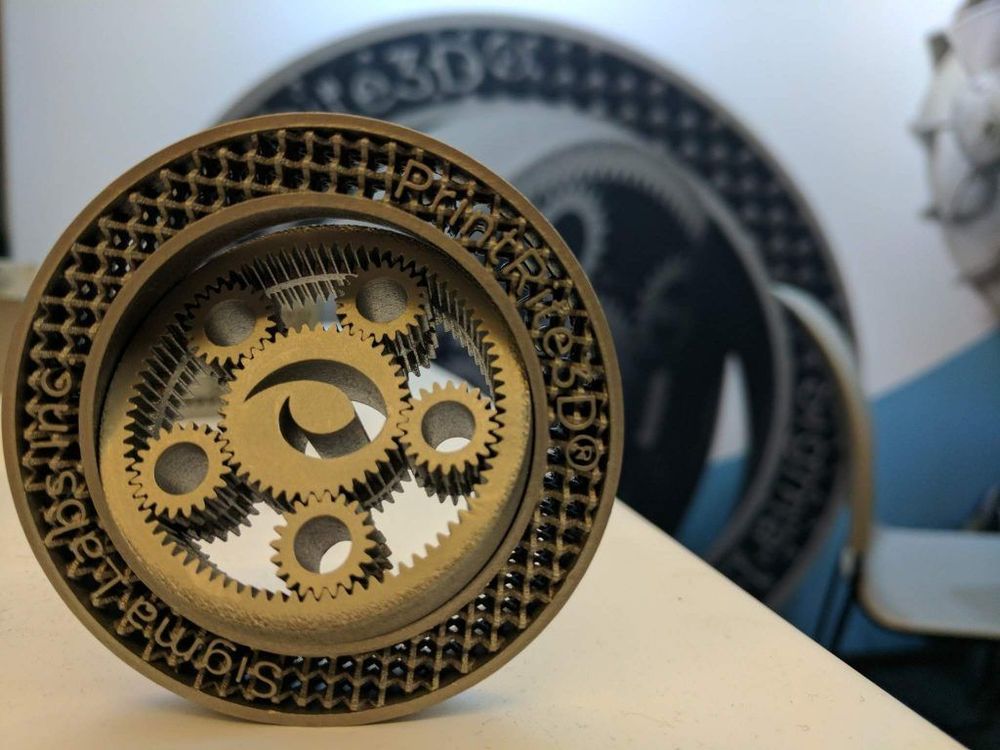Page 8879
May 5, 2019
Happy Birthday to Dorothy Garrod, One of the First Women Archaeologists
Posted by Genevieve Klien in category: futurism
Equipped with only dining hall spoons, the clothes on their backs, and pure archaeological curiosity, undergraduates at Cambridge’s Newnham College in 1939 were given a crash course in field work when their professor, Dorothy Garrod, led them through the excavation of skeletal remains that had been unearthed on campus as a result of air-raid shelter preparations.
“[The dig was] definitely not up to today’s PPE [personal protective equipment] standards for sure,” Sam Leggett, a current doctoral student in archaeology at Newnham College, wrote in an email to Gizmodo. As rudimentary as the excavation may have been, he said, “I’ve recently been involved with radiocarbon dating these skeletons, and have undertaken stable isotope analysis on their teeth as part of my PhD, so Professor Garrod’s legacy definitely still lives on!”
May 5, 2019
Podcast: Preserving Organs for the Future
Posted by Paul Battista in categories: biotech/medical, futurism
Organ preservation could be an effective therapy for end-stage organ failure, says Sebastian Giwa, the Chairman and CEO of the Organ Preservation Alliance, a non-profit organization focused on advancing organ preservation. Giwa discusses the challenges and strategies related to organ preservation.
May 5, 2019
Sigma Labs PrintRite3D technology validated by DARPA study
Posted by Genevieve Klien in category: military
New Mexico additive manufacturing software developer Sigma Labs, has obtained third-party validation of its PrintRite3D platform in a study by U.S. defense agency DARPA.
The study discusses the validation process involved in producing complex metal parts of consistent quality. It was sponsored by DARPA’s Open Manufacturing Program and conducted in conjunction with aircraft engine manufacturer Honeywell Aerospace, which has been collaborating with Sigma labs since 2014.
As an agency of the United States Department of Defense (DoD), DARPA is responsible for the development of emerging technologies for use by the military. In line with this goal, it created the Open Manufacturing program to ‘lower the cost and speed the delivery of high-quality manufactured goods with predictable performance.’
Continue reading “Sigma Labs PrintRite3D technology validated by DARPA study” »
May 5, 2019
Physicists Are Bewitched by Twisted Graphene’s ‘Magic Angle’
Posted by Genevieve Klien in category: physics
The stunning emergence of a new type of superconductivity with the mere twist of a carbon sheet has left physicists giddy, and its discoverer nearly overwhelmed.
May 5, 2019
Google Confirms It Will Automatically Delete Your Data — What You Need To Know
Posted by Genevieve Klien in category: futurism
Google has quietly announced that it will soon start automatically deleting user data. Here’s everything you need to know…
May 5, 2019
Neuralink: Elon Musk’s ‘mind-boggling’ AI computer has ‘potential for abuse’
Posted by Genevieve Klien in categories: Elon Musk, robotics/AI
ELON MUSK’S ‘mind-boggling’ Neuralink brain-computer interface, could revolutionise the human consciousness – but the cutting-edge tech could come at a cost, an AI expert has warned.
May 5, 2019
How Wearable Tech, Neuroscience and Nutrition Can Unlock Peak Performance
Posted by Genevieve Klien in categories: neuroscience, wearables
Network partner Ben Angel previews the second season of his series, ‘Becoming Unstoppable.’
May 5, 2019
Stanford Scientist Says in-Ear Gadgets Will Be Able to Monitor Our Brains
Posted by Shailesh Prasad in category: biotech/medical
Personal gadgets known as “hearables,” which communicate with the neural signals passing through our ears in order to monitor and interact with our brains, are on their way.
Hearables could help us focus on specific conversations, like smart hearing aids, or monitor our brain activity to treat tinnitus. That’s according to Poppy Crum, the Stanford University neuroscientist and chief scientist at Dolby Laboratories who coined the term, who recently wrote about the concept in IEEE Spectrum.
The emerging tech stands to blur the lines between artificial and biological intelligence, Crum argues — augmenting our thought processes and collaborating with our brains.
Continue reading “Stanford Scientist Says in-Ear Gadgets Will Be Able to Monitor Our Brains” »


















